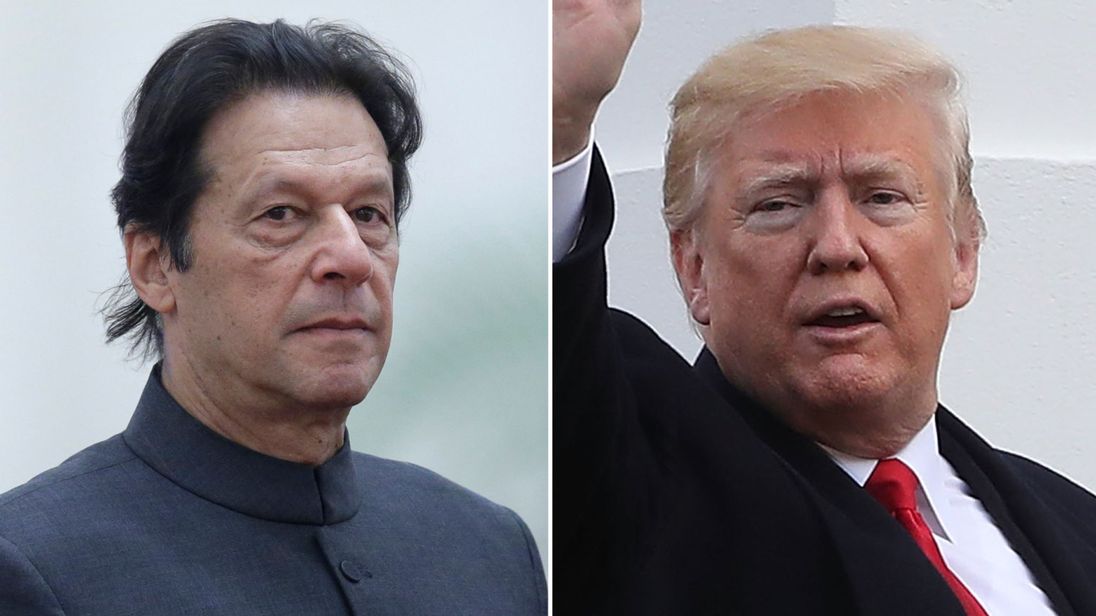By Zhou Rong (Global Times, 10 December 2018) – A letter from US President Donald Trump to Pakistan Prime Minister Imran Khan sent shock waves around the world. First Trump expressed irritation with Pakistan on Twitter. Then a few days later, he spared no efforts in praising Islamabad’s role in regional security. What brought about this U-turn in attitude?
Earlier the US made a series of complaints about Pakistan doing nothing in return for US military assistance and withheld military assistance valued up to $2.5 billion. Worse, Washington forbade Pakistani military personnel from training at American military academies.
Trump’s letter stressed that both the US and Pakistan have suffered huge losses in the war in Afghanistan and expressed his hope that Pakistan could play a more positive role in the regional peace process. The U-turn suggests a US desire to end the war decently.
The US war in Afghanistan has become the longest-running in American history. More than 2,400 US service personnel and about $1 trillion has been lost. For Pakistan, those numbers are 7,000 and $330 billion. It is urgent Washington reconcile with the Afghan Taliban so that US forces can withdraw from Afghanistan in a decent way with a regime acceptable, if not necessarily favorable, to the US. Otherwise, the nearly 18 years of US military presence in Afghanistan would be in vain.
The help of Islamabad is essential for Washington to reach an accommodation with the Taliban. Pakistan remains the most influential foreign force on the Afghan Taliban and the Afghan Taliban headquarters is located in Quetta, capital of Balochistan, in Pakistan. Without Pakistan, it will be considerably difficult for the US to carry forward substantive negotiations with the Afghan Taliban, perhaps even tough to build a connection. In addition, the weapons and supplies of the US military and the NATO International Security Assistance Force in Afghanistan are transported through Pakistan. Washington has thus realized that without the help of Islamabad, any effort to end the war is futile.
The Trump government is anxious to make a breakthrough in the Afghanistan peace process to increase its political capital for the 2020 presidential election. But the Afghan Taliban do not buy it, insisting that peace discussions cannot be carried forward unless the US pulls all its troops out of Afghanistan. This is obviously unacceptable to the US. Washington needs help from Pakistan to persuade the Afghan Taliban to change their minds.
Trump’s letter came within a global context that in November Russia hosted an Afghanistan Peace Conference in Moscow with the presence of the Afghan Taliban. Iran was also invited. Although fruitless, it was the first international conference chaired by a permanent member of the UN Security Council. For the Taliban, attending the conference showed that negotiating with Washington was not its only diplomatic option.
All signs indicate that the US is losing its dominance in the Afghan peace process, which is apparently not what the Trump administration wants.
So far, the Afghan government force narrowly controls 53 percent of the nation’ territory, down from 75 percent in 2015. One-fifth is under the control of the Taliban regime and the remaining 27 percent lurches between the two sides. John W. Nicholson Jr., former commander of US Forces Afghanistan and current head General Scott Miller seem to have lost confidence in the US government strategy toward Afghanistan. And the US does not have many chips left to bargain with the Afghan Taliban.
The Trump administration previously used to highlight India’s role in the future reconstruction of Afghanistan and publicly blast Pakistan, trying to force Islamabad to do what Washington asks. But the US has come to realize it must seek help from Pakistan after its negotiations failed with the Taliban.
The Pakistan foreign ministry welcomed Trump’s letter in a statement on December 3. For Pakistan, such a positive attitude by the US is apparently better than the stalemate between the two countries. However, the Pakistani military doesn’t think highly of the letter and takes it as another pressuring strategy. The US letter didn’t mention whether the US is preparing to resume its assistance to Pakistan as a reward for Pakistan’s efforts. Whether it can win Pakistan’s trust remains questionable.
The author is a senior search fellow at Chongyang Institute for Financial Studies, Renmin University of China. [email protected]


